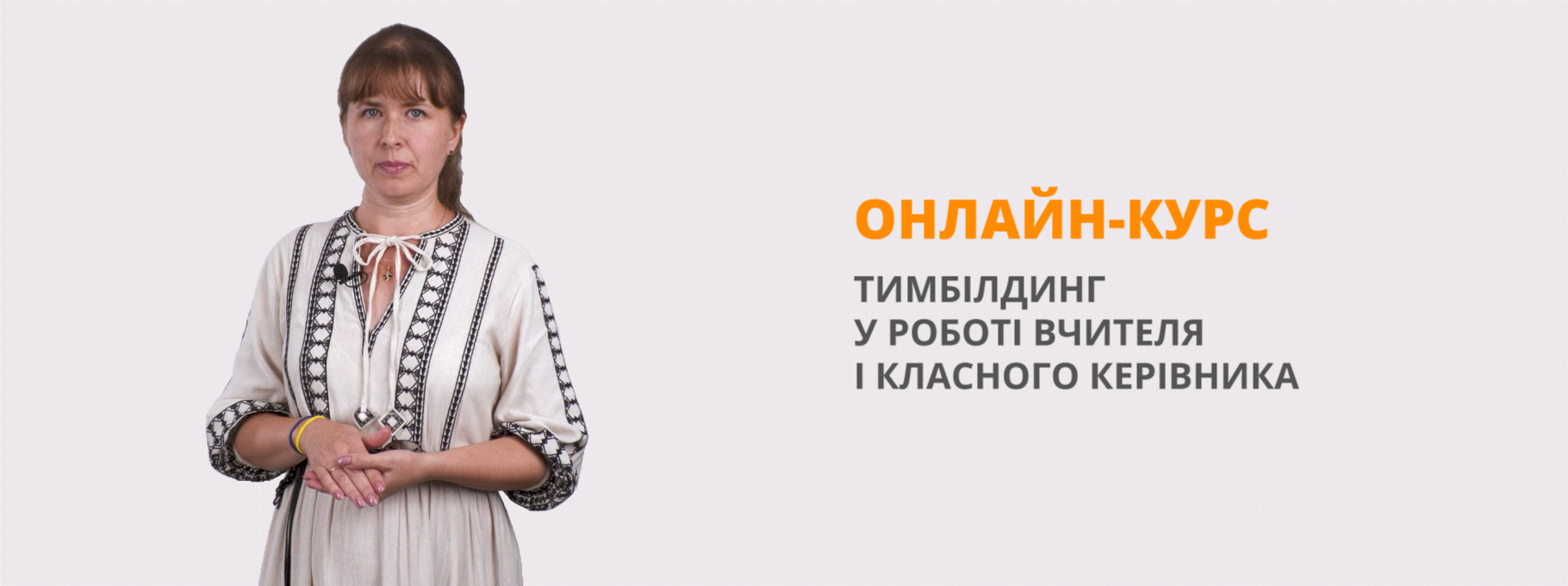План-конспект уроку для учнів 2 класу на тему " МОЇ ДРУЗІ"
Topic of the lesson: My Friends. (2th form)
Objectives: Students will be able to:
greet people;
meet people;
ask and answer the question “What's your name?”;
use new lexical units (hello, hi, good morning, good afternoon, good evening, good night, goodbye, see you later, How are you? I'm good, I'm great, I'm wonderful, I'm hungry, I'm not so good, What's your name? I'm… ).
Англійська мова
2 клас
Тема уроку: Мої друзі.
Автор:
Тимощук Юлія Сергіївна
вчитель англійської мови
БСШ №1
м. Біла Церква, Київська обл.
Topic of the lesson: My Friends. (2th form)
Objectives: Students will be able to:
- greet people;
- meet people;
- ask and answer the question “What’s your name?”;
- use new lexical units (hello, hi, good morning, good afternoon, good evening, good night, goodbye, see you later, How are you? I’m good, I’m great, I’m wonderful, I’m hungry, I’m not so good, What’s your name? I’m… ).
Equipment and materials: Smart board, flashcards.
Procedure
I Introduction
T: Good morning, dear students! How are you getting on? (Students answer). I can see that you are OK and ready to start the lesson. Today we continue speaking about your friends.I hope that we’ll have an interesting time together. Do you?
II. Warming-up:
- A teacher says “Hello” and encourages pupils to say “Hello” in response.
- Ask children to sing the song “Hello, how are you?”
The 1st couplet
Hello, hello, hello, how are you?
I’m good, I’m great, I’m wonderful.
The 2nd couplet
Hello, hello, hello, how are you?
I’m tired, I’m hungry, I’m not so good.
- Ask one child to stand up and say “Hello, how are you?” to the children next to him/her. Encourage children to do the same in pairs, greeting each other and giving the answers.
- Point to yourself and say your name. “I’m…..”
- Encourage children to greet each other and say their names.
- Say “My name’s…” and ask pupils to say their names.
III.Checking up the home task
T: Your home task for today was to prepare dialogues where you have to write a short text about your best friend.
IV. Main part of lesson
1. Learning new vocabulary.
- Ask children to look at the smart board. Show them slides 1, 2, 3, 4 (you can also use flashcards) saying “morning”, “afternoon”, “evening”, “night”. Encourage children to repeat these words.
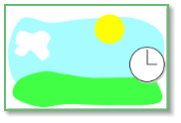
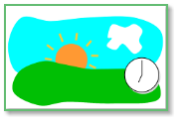
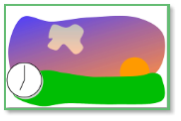

- Do it again but this time saying “good morning”, “good afternoon”, “good evening”, “good night”.
- Explain the difference in greeting people, using “Hello” and “Good morning”.
- Show video “Greetings song”.
![]()
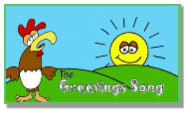
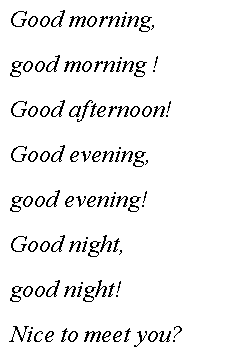
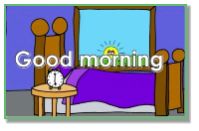
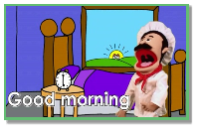
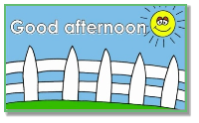
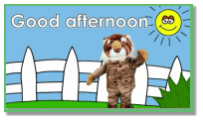
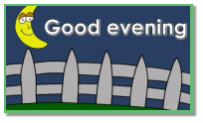
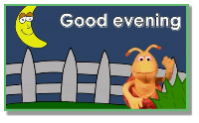
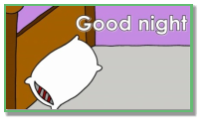
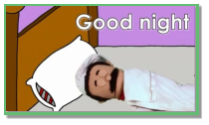
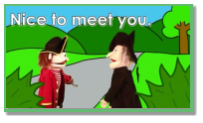
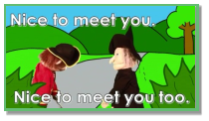
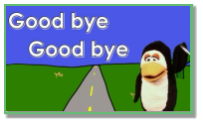
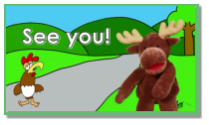
2. Speaking.
- Divide children into groups to make dialogues. They have to ask and answer the question “What’s your name?
3. Play the game “What’s missing?”
Show the flash card with the pictures “My school things”.
Pupils repeat every word after the teacher.
Then the teacher asks the children to close the eyes. The teacher hides one of the cards and asks “What is missing?”
Kids guess.
Relaxation
“I see you are tired. Let’s have a little rest. Stand up, look on the screen and do some exercises.
- Play a short game shouting “stand up” and “sit down”, where children have to follow your instruction.
Show video “Clap your hands”
The lesson is over. You were great today! Thank you!
(The teacher says “Good bye”. Pupils sing the song “Bye, bye, good bye!”)
V. Hometask
- greet parents at home in different parts of the day;
- ask their names, and say ‘goodbye’ when they go to school next morning.
VI. Summing up
T: You were very active today. Your marks are…
Tell me please what we have done today. What have you learnt? What was interesting? (Students answer the questions)
Thank you very much and good-bye!
References:
- O. Karpiuk 1. Flashcards.
- English video lessons
- Super Simple Songs
1


про публікацію авторської розробки
Додати розробку
